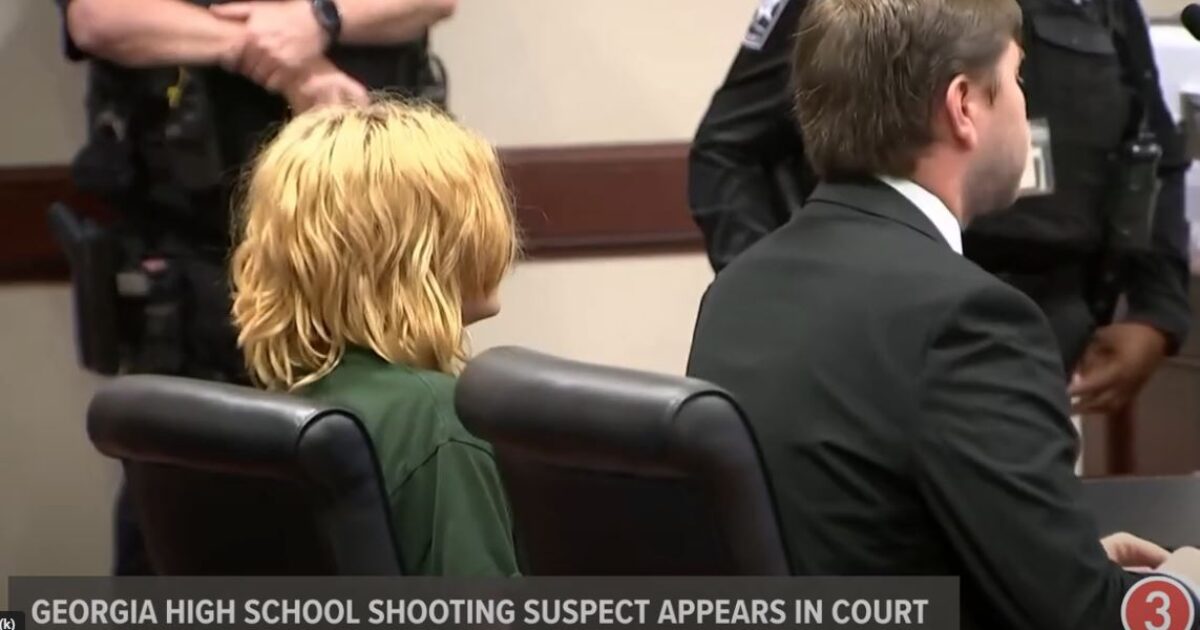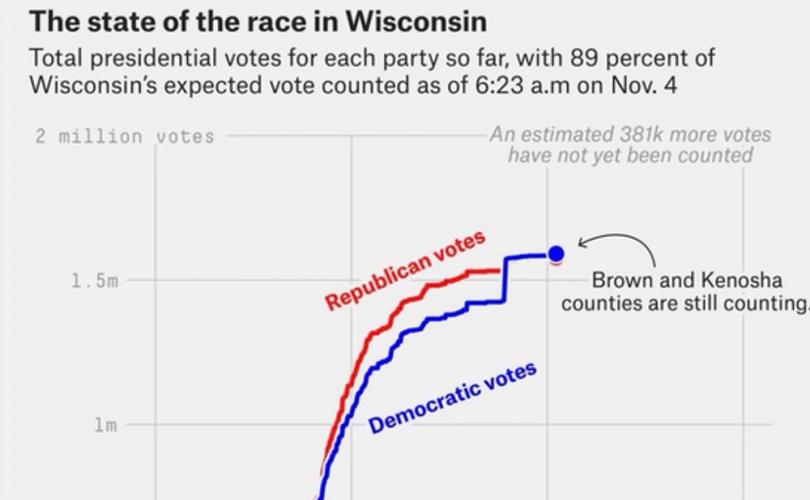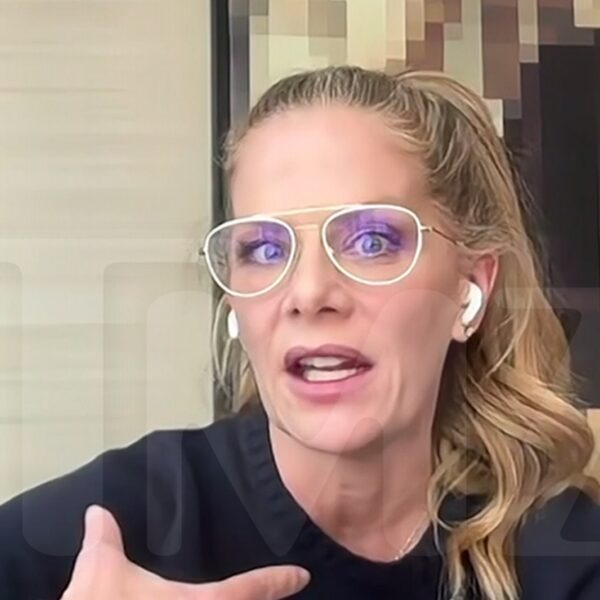Guest post by Joe Hoft at JoeHoft.com – republished with permission

Republished with permission from AbleChild.
In a hushed Georgia courtroom, father and son faced justice for a devastating murderous act that shook a community to its core. Fourteen-year-old Colt Gray sat before the judge, accused of snuffing out four lives at Apalachee High School. Grieving families watched silently as the teen faced four counts of first-degree murder, with the possibility of life in prison.
Colin Gray, 54, followed his son into the courtroom and charged with contributing to the delinquency of a minor, four counts of involuntary manslaughter, and child cruelty. If convicted, Colin could face up to 180 years behind bars. As cameras captured the proceedings, father and son were assigned public defenders. After a brief recess, the teenage shooter was summoned back to the courtroom. The judge, realizing the need for clarification, formally advised the teenager that state law prohibited the death penalty for juveniles,
So now the legal stage is set and it’s anyone’s guess what direction the case will proceed. There are many factors to consider, beginning with whether the father and son will plead guilty or will they fight the charges. If the latter path is pursued, will the defense focus on Colt’s mental health history, the mother’s drug addiction and rap sheet, or the domestic abuse surrounding the father. In the case of the father, will the defense focus on a barely literate man trying to raise a teenage son with limited financial and emotional resources? It’s anyone’s guess.
What is certain, though, if this case is like the others before it, is that the public will be lucky to be provided with the mental health data of everyone involved. It is certain that the Georgia Department of Family and Children Services is already in a heightened defensive mode, as many questions will surround the state agency’s oversight of this family, especially fourteen-year-old Colt.
The mental health history, including prescription medications, of the accused is key to understanding the dynamics of this broken family. Unfortunately, too often, the prosecution, and even the defense, minimize the importance of the shooter’s mental health history and the adverse effects that are associated with the prescribed drugs.
In the case of Nikolas Cruz, the shooter at Marjory Stoneman Douglas High School in Parkland Florida, he pled guilty and, therefore, was only afforded state court appointed representation during his sentencing hearing. Even though the State of Florida Department of Children and Families provided mental health services to Cruz since he was seven years old, the court apparently didn’t consider this a serious conflict of interest. Sadly, Cruz’s defense “team” had little understanding of the mind-altering psychiatric drug cocktails that were prescribed to Cruz and, therefore, no importance was attached to the devastating effect the drugs may have played in his violent behavior.
Of course, if the Gray cases go to trial, there are other factions that could care less about mental health histories and will solidly focus on attacking the gun lobby and manufacturers. This worked well for the Sandy Hook shooting victims’ families who were successful in winning a suit against gunmaker, Remington, to the tune of $73 million.
In Tennessee, where Audrey Hale shot and killed six at the Covenant School, the legal landscape regarding psychiatric treatment records is evolving, with recent challenges focusing on copyright claims. This emerging strategy appears to offer a new layer of protection for behavioral health providers and pharmaceutical companies. By asserting copyright over treatment notes and drug formulations, these entities are creating additional barriers to accessing sensitive mental health information and proprietary drug data. This approach has sparked debate over the balance between patient rights, medical transparency, and corporate interests in the mental health sector.
On the other hand, in the case of father and son Gray, there are other entities that may be key in revealing how the system failed this family and, especially, this fourteen-year-old. An in-depth examination of the roles of family services and law enforcement add new dynamics. Consider that the Georgia Police and FBI were in contact with the father and son just a year earlier when accusations were made that the then thirteen-year-old made threats about carrying out a shooting at an undisclosed middle school.
The FBI was unable to substantiate the accusations that were apparently made on-line in 2023. However, the FBI should have completed a Threat Triage and Data Collection form, which is extremely comprehensive, including information about the suspect’s mental health history and prescribed medications. Having the FBI make this threat assessment publicly available would go a long way toward understanding why the federal agency failed to act in 2023.
Given the ever-increasing numbers of children being prescribed mind-altering psychiatric drugs as “treatment” by state family services, it is an obvious target to glean any and all information about what role the State of Georgia’s Department of Family Services played in response to the obvious neglect within this family. How exactly did Family Services handle the Gray family and what state behavioral health interventions were utilized on the children’s behalf? Did Family Services ever suggest that the kids be removed from the broken home and did any of the state’s behavioral health experts that dealt with the family ever consider the fourteen-year-old Colt to be a harm to himself or others? Were warning signs ignored or overlooked that may have contributed to this tragedy?
If the fourteen-year-old Colt has a competent attorney, the mental health information should come out during the trial. While it may not be enough to keep the shooter from spending the rest of his life in prison, it is mitigating information that must be considered. But the hurdle is making mental health records and psychiatric drug information publicly available. The defense will have its hands full with the pharmaceutical and behavioral health industries that would prefer that this information never see the light of day.
Be the Voice for the Voiceless
Every dollar you give is a powerful statement, a resounding declaration that the struggles of these families will no longer be ignored. Your generosity today will echo through generations, ensuring that the rights and well-being of children are fiercely guarded. Don’t let another family navigate this journey alone. Donate now and join us in creating a world where every child’s mind is nurtured, respected, and given the opportunity to thrive. As a 501(c)3 organization, your donation to AbleChild is not only an investment in the well-being of vulnerable children but also a tax-deductible contribution to a cause that transcends individual lives.














